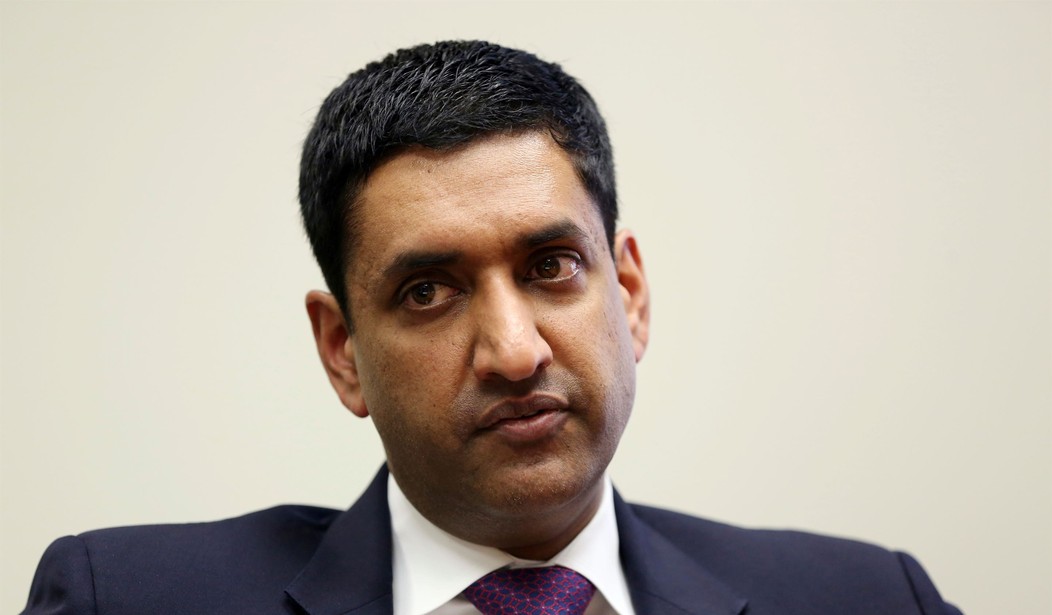Of all the issues Congress wrestles with, who would have thought that the one garnering bipartisan consensus would be TikTok? As RedState reported, on Wednesday, the House passed a bill to force the sale of the app (or, alternatively, a ban of the social media juggernaut).
READ MORE: House Passes Bill to Force TikTok Sale, Heads to Senate Next
The bill passed overwhelmingly — 352 to 65. But not only was the support for the measure bipartisan; so was the opposition. While 197 Republicans and 155 Democrats voted in favor of the bill, 15 Republicans and 50 Democrats opposed it. (Fourteen members did not vote, and Jasmine Crockett (D-TX) voted "present.")
One of the Democrats who opposed the measure was Ro Khanna (D-CA), who joined Martha Raddatz on ABC News' "This Week" on Sunday to elaborate on his reasons for voting "Nay."
After voting against the TikTok bill, Rep. Ro Khanna says it is not “actually addressing the issue.”
— This Week (@ThisWeekABC) March 17, 2024
“Congress, A, doesn’t understand, in my view, all of the social media and how it’s working. And, B, is out of touch with what the American people want.” https://t.co/Mm4jDSfmi5 pic.twitter.com/kgcvQ94Y8F
From their exchange:
RADDATZ: I also want to ask you why you voted against it — I know you said First Amendment concerns?
KHANNA: Martha, look, there are two national security issues that proponents of the bill have cited — both are legitimate. One: Will the data get to a foreign government — in this case, the Chinese Communist Party? Two: Will the Chinese Communist Party have an influence on algorithms? We can deal with both with a narrowly tailored law. Let's ban any data going to a foreign country and protect American data. Second, let's ban any foreign interference in a social media app, whether that's TikTok or another app. And by the way, those laws would also cover data brokers, which are selling data to Chinese companies. So, this bill is not actually addressing the issue — 71 percent of Americans want to protect data privacy; only 31 percent want a ban on TikTok. Congress, A: doesn't understand, in my view, all of the social media and how it's working. And B: is out of touch with what the American people want.
Raddatz then drilled down on Khanna's stance a bit.
Rep. Ro Khanna tells @MarthaRaddatz that the TikTok bill the House passed wouldn't actually protect Americans, instead pushing for other legislation that he says would better prevent foreign adversaries from obtaining private information. https://t.co/3Btr5ylHk0 pic.twitter.com/QhPg4vdHLG
— This Week (@ThisWeekABC) March 17, 2024
RADDATZ: How do you do that? Get more specific about what you say – banning — what does that all mean and how does that work? We don't always know what's going over there or what's being taken.
KHANNA: Martha, let me — I think some of the facts would be helpful. So, TikTok is owned by ByteDance. ByteDance is a Chinese company. It has 60 percent international investors, including KKR and General Atlantic. Three of the five board members are Americans. They have data that currently, Oracle is managing in Texas. As you mentioned earlier to Congressman Turner, there have been reports, in some cases, that that data has leaked and had access to people in China. No evidence publicly that the Chinese Communist Party has had it, but there has been evidence that they could have it in Chinese nationals. So, pass a law, one, to prevent these apps — whether it's TikTok or Facebook or YouTube — from collecting data. That bill has been sitting in the House Commerce Committee for years, and it doesn't move. Second, pass a law that if there's any evidence that the data goes to China, then Oracle and TikTok would be held liable, civilly or criminally. Third, pass a law that if Chinese nationals are involved in the algorithms — people are claiming these algorithms are manipulating Americans — if there's any...insight — evidence — that a Chinese national — or any foreign national — is manipulating algorithms, that would be illegal.
I'm no huge Khanna fan, but what he's saying here seems to make some sense. I'll confess to being ambivalent on the issue myself. I don't use the app and don't intend to — for some of the very reasons cited by those who support this measure. At the same time, I use other social media apps and am well aware of both the data collection and algorithm manipulation perils of even domestically owned platforms — not to mention the censorship issues. More importantly, the cynic in me is more than a little perplexed at why this is the seemingly unifying issue it appears to be amongst Congress critters who often can't even agree what day it is.
Lastly, I'm puzzled as to why the current measure places the determination as to what constitutes a "foreign adversary controlled application" and "qualified divestiture" in the hands of the President rather than Congress. Something about that strikes me as ill-advised (and ripe for abuse). In any event, it seems like legislation that is more narrowly tailored to directly address the concerns of data collection and algorithm manipulation would be the better way to go.
RELATED:
OPINION: As a Nationwide Ban Looms, Trump Must Not Go Soft on TikTok
Thomas Massie Sounds the Alarm About the Democrat's Trojan Horse Inside the TikTok Ban














Join the conversation as a VIP Member